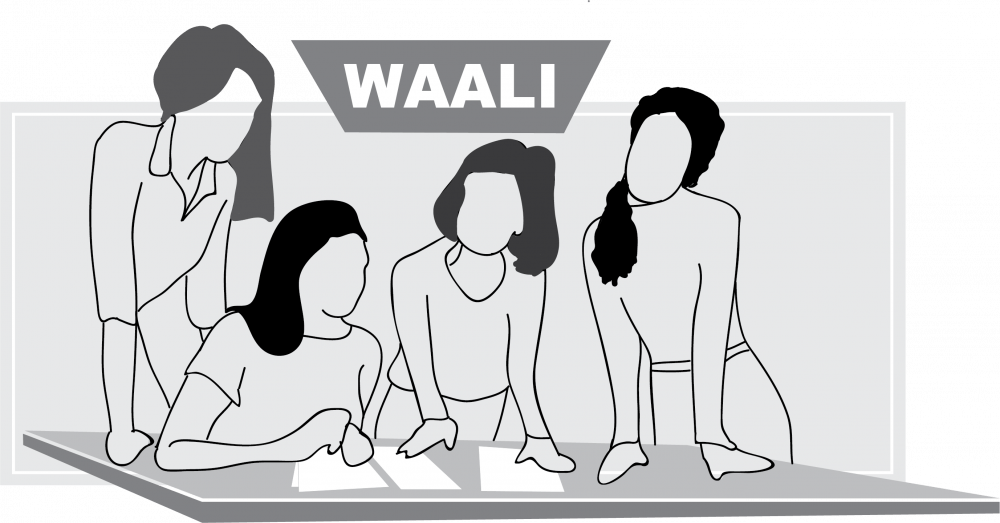Third-year College student Jasmine Mao grew up in a predominantly white town and school district. As a first-year at the University, she spent little time thinking about her Asian American identity and its impact on her life. It wasn’t until her second-year when Mao enrolled in Professor Sylvia Chong’s “Introduction to Asian American Studies” course that she developed an interest in what it means to be Asian in America. This sudden desire to connect with her Asian American identity set her on a new path towards personal transformation.
“So many moments in the class have been pivotal for me,” Mao said. “I honestly don’t think I would be who I am without that class.”
Eager to explore her personal identity, Mao searched for Asian American communities within the University to help connect with others that share her same experiences. After scrolling through the multicultural student newsletter, she came across an advertisement for the Women’s Asian American Leadership Initiative — a relatively new student-led organization that aims to empower Asian-American women and create a safe space for students to discuss issues that impact their identities.
WAALI is open to second- and third-year Asian American women seeking an inclusive and welcoming place to actively engage with others who share their same experiences. To join, students complete an online application, which is followed by an in-person interview. While facilitators seek members who will be committed to the program and engaged during discussions, the application and interview process is primarily geared towards getting to know the student better. With less than 10 members in the current group, this intimate environment allows students to connect on a personal level.
“I think the application and interview process are a bit misleading because we are not looking for a specific person but want to make sure you are passionate about what we are passionate about and that you have an interest in discussing these things with us,” said Ariana Nazar, third-year College student and WAALI co-facilitator.
The program lasts eight weeks and concludes right before Thanksgiving. Throughout the spring semester, facilitators begin the recruitment process for the next year’s fall cohort and encourage students to apply. In April, WAALI facilitators consolidate all the applications and begin their interview process.
Each year, the facilitators of the organization select nine topics to cover throughout the fall semester. Facilitators value and encourage input from its members on specific topics or current issues they feel most passionate about. This helps narrow down the pool of topics when selecting the final nine. Facilitators use their personal knowledge and experience as well as the input from new members to establish a semester outline and a set of guidelines.
“This is our form of advocacy — helping others become more educated, aware and prepared when they face some of the issues that Asian American women have to deal with,” Nazar said.
Members meet on Monday evenings for two hours and either engage in group discussions or hear from guest speakers with first-hand experience and knowledge about the obstacles Asian American women encounter. So far, members have held discussions about how their identity intersects with and pervades the professional environment and Asian American representation in media. In addition, both faculty members and student activists who identify as Asian American women have come in to discuss their personal experiences.
“I learned a lot, especially how the University treats its Asian American female professors,” said second-year College student Kathryn Gatuslao. “It is nice when you can make a reference to something and other people in the room actually understand what you are talking about.”
Other topics include a discussion on mental health and its intersection with both an Asian American and female identity. A female psychologist from the University’s Counseling and Psychological Services shared her insights on the subject matter. In addition, WAALI held a conversation on domestic violence during the 2018 to 2019 term, which called attention to the high percentages of Asian American women who suffer from domestic abuse. According to the Asian Pacific Institute on Gender Based Violence, 21 to 55 percent of Asian women in the US report physical or sexual violence.
Facilitators start each meeting by having everyone share their highs and lows for the week. This allows facilitators to check in with their members and offer support. Moreover, facilitators have incorporated “her stories” into the curriculum where each member receives 10 minutes to share a part of their life or identity that they are passionate about.
“These are all really incredible discussions we had because I learned that some people in the room share the same feelings that I did, but I also learned how others experiences differed from mine,” said second-year College student Niya Venkatraman. “It also feels good to know that you are not alone.”
The members of WAALI appreciate the perspectives and processes that the program uses to incorporate and discuss the many aspects of being an Asian American woman. The program also gives them a space to be themselves.
“There are not a lot of programs that take an intersectional approach where you can talk about what it means to be a woman, but also an Asian American woman,” said Kim Salac, third-year College student and current co-facilitator. “For me, that is a big mission of WAALI.”
WAALI continues to make an impact on past members who are now more conscious of their Asian American identity and want to critically engage with others that share these identities. After participating in WAALI, Mao decided to start her own student organization called Asians Radicalizing Together. She hopes to create a community-based collective for Asian American students seeking leftist political engagement.
“I owe a lot to WAALI in that I wouldn’t even have considered an idea like this before,” Mao said.







